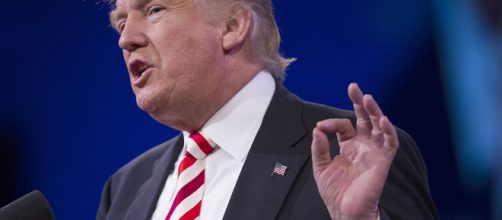President Donald Trump signed the latest version of the NASA Authorization bill, the first since 2010, while congressional space leaders of both parties looked on appreciatively. While the president touted space exploration and commercial space, his primary concern seemed to be on how the space agency can create jobs, "a lot of jobs, and these are great jobs." However, the real news was the announcement by Vice President Mike Pence that the executive order reforming the White House Space Council would soon be signed.
The senators and congressmen, including Senators Ted Cruz, Marco Rubio, and Bill Nelson, who were gathered to witness the signing were filled with fulsome praise.
The most eloquent testimonial came from Rep John Culberson, R-Texas, who chairs a House appropriations subcommittee that funds NASA. "Just as Americans remember that President Eisenhower was the father of the interstate highway system... future generations will remember that President Donald Trump was the father of the interplanetary highways system."
Culberson’s rhetorical gambit was interesting, to say the least. Most people bring up President Kennedy and Apollo when trying to light a fire under a modern president to explore space. The congressman from Texas is suggesting that the next great space initiative, which will almost certainly include the moon as well as Mars, will provide something more permanent than a flags and footsteps media spectacular.
Trump, by the way, seemed taken aback because he reiterated his campaign promise to see to America’s actual highways before sending America to Mars.
The vice president’s announcement about the White House Space Council is welcome news. The council would provide a single focal point for developing space policy, bringing to a single table the heads of various agencies and departments of the government that deal with space. The last time a White House Space Council existed was during the first Bush presidency when the White House was trying to start the Space Exploration Initiative in the face of opposition from Congress and even NASA. Almost 30 years later, the new president is seeking to get Americans beyond low Earth orbit, but at least this time Congress and the space agency seems supportive of the effort.

